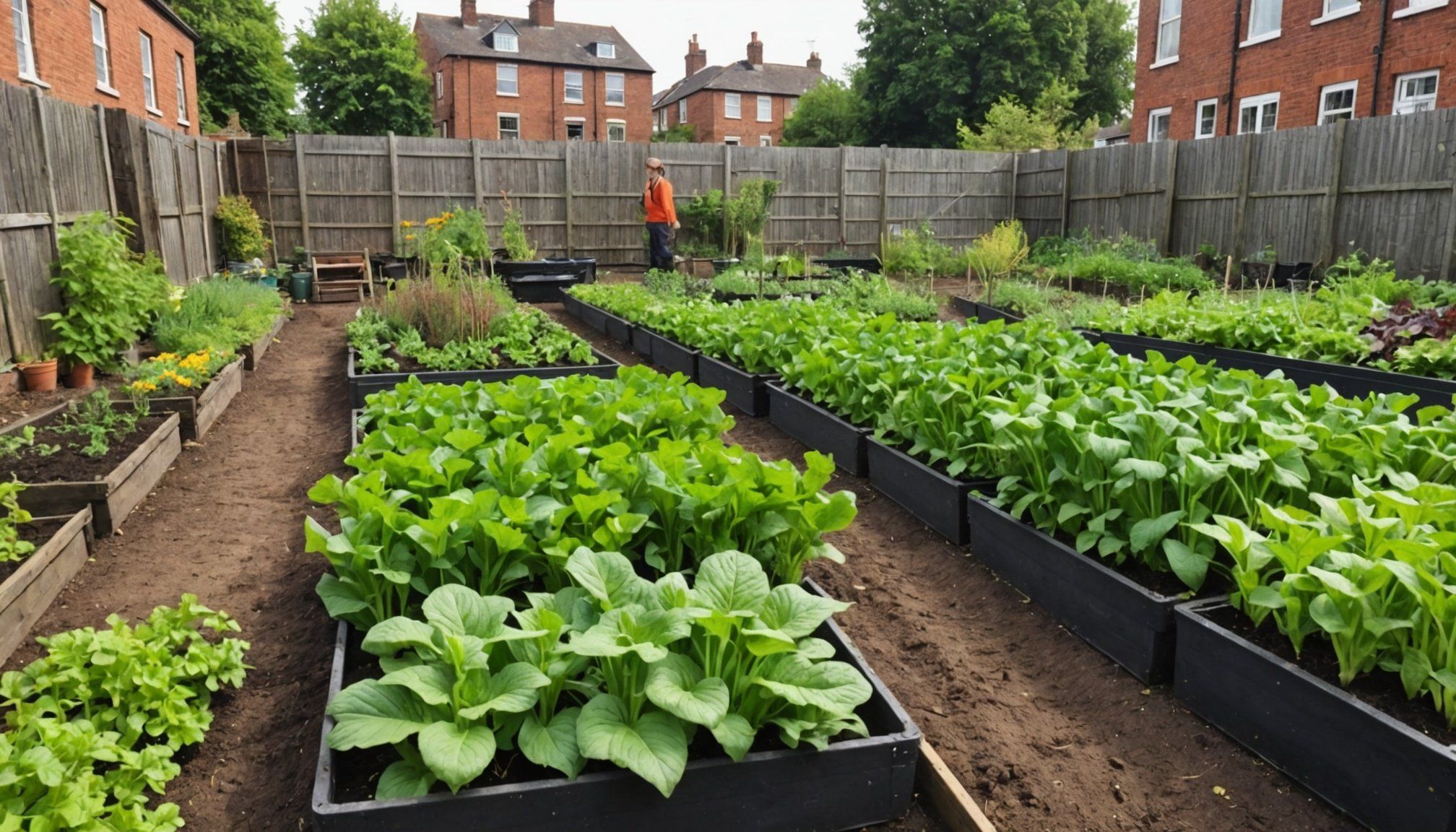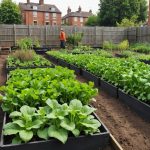Understanding Local Farming Regulations in the UK
Navigating local farming regulations is crucial for anyone involved in urban gardening across the UK. Each region may have distinct guidelines, particularly concerning urban gardening laws. To ensure compliance, gardeners must familiarise themselves with these rules, as they can vary significantly depending on local authority stipulations.
A fundamental aspect of these regulations includes understanding the essential permits and licenses required for urban gardening. Whether you’re starting a small allotment, a community garden, or any other type of urban agriculture project, you’ll likely need to obtain specific permissions from local councils. Failure to secure these can lead to fines or restrictions on gardening activities.
In the same genre : Mastering genetic modification regulations: essential insights for uk biotech firms
Another key consideration for urban gardeners is the implications of zoning laws. These laws determine what land can be used for specific purposes, such as residential or commercial agriculture. Urban agricultural projects must align with these zoning restrictions, which dictate the activities permissible in a given area.
Additionally, familiarising yourself with UK gardening guidelines could be beneficial. They often outline the use of resources like water and pesticides, ensuring that any gardening activities promote ecological balance. Networking with local gardening communities can also offer insights into best practices and help navigate complex regulatory landscapes.
Topic to read : Mastering uk employment law: a vital resource for startups engaging global remote talent
Essential Permits and Licenses for Urban Gardening
Navigating the intricacies of gardening permits and urban agriculture licenses is crucial for setting up a successful urban garden in the UK. Whether you’re planning an allotment or a community garden, individual regions have specific regulations that require your attention. Knowing these UK permit requirements can help in avoiding costly mistakes.
Applying for the necessary permits starts with contacting your local council. They provide the official guidelines on what permissions are necessary. This could vary from simple allotment permits to more complex licenses for larger agricultural projects. It’s important to have a clear understanding of these requirements before breaking ground.
Different types of urban gardens may trigger different license needs. For instance, a small community garden might only need a basic permit, while a larger urban farm could require comprehensive licenses covering multiple aspects of its operations. Consulting with local authorities and experienced community gardeners can provide insights and help streamline this process.
Avoiding common mistakes, such as failing to submit complete paperwork or neglecting to check current zoning regulations, can accelerate your project’s start. Establishing contact with local garden societies can illuminate lesser-known regional requirements, reducing red tape and enhancing your understanding of local expectations.
Practical Tips for Starting Your Urban Garden
Embarking on the journey of urban gardening can be both exciting and daunting. To ensure a successful start, it’s crucial to consider various aspects, from plant selection to space management.
Firstly, identifying the right plants is paramount. Opt for species that are well-suited to urban environments, thriving in limited sunlight and varying temperatures. Herbs like basil and mint, along with vegetables such as tomatoes and salad greens, are commonly favoured for their adaptability and yield.
Soil preparation is another critical component. Begin by assessing the current soil conditions. Enhancing it with organic compost or natural fertilizers can dramatically improve plant health and growth. Sustainable gardening practices such as crop rotation and using native plant species can also contribute to a resilient urban garden ecosystem.
Urban spaces often come with spatial constraints, making vertical gardening a go-to solution. Utilizing walls, fences, and even balconies for plant growth optimises available space and can be aesthetically pleasing.
Finally, practising water conservation by collecting rainwater or using drip irrigation systems can support an eco-friendly approach, reducing water waste and enhancing environmental contributions. These beginner-friendly tips can ensure your urban garden is both productive and sustainable.
Resources for Urban Gardeners in the UK
Finding the right gardening resources UK is vital for urban gardeners looking to thrive. Various governmental and nonprofit organisations offer support to bolster urban agriculture ventures. For instance, the Royal Horticultural Society provides educational resources and guides on sustainable practices. Additionally, local councils often have programs that supply grants and subsidies to promote green initiatives.
Engaging with community gardening programs can also enhance your gardening journey. These programs not only offer practical resources like seeds and tools but also provide access to shared spaces where gardeners can collaborate and share their experiences. For example, the UK’s Community Gardens Network facilitates such opportunities, nurturing a culture of cooperation among urban gardeners.
The importance of networking with local gardening groups cannot be overstated. These connections offer a platform for exchanging best practices and innovative ideas. By joining networks like the Federation of City Farms and Community Gardens, gardeners can access workshops and events designed to empower community-based horticulture efforts.
Building relationships within local gardening organisations provides both knowledge and camaraderie, making the urban gardening experience more rewarding and impactful. Engaging with these resources equips urban gardeners with the tools necessary to cultivate not only their gardens but their communities as well.
Best Practices for Sustainable Urban Farming
Urban farming presents an exciting opportunity to contribute positively to urban ecosystems. Emphasising sustainable practices can yield numerous benefits, including environmental and community enhancement. One essential approach is incorporating biodiversity and companion planting, which support a balanced ecosystem and deter pests naturally. Planting species that coexist beneficially can aid in maintaining soil health while promoting mutual growth.
Eco-friendly gardening methods also encompass waste reduction and recycling strategies. Composting food scraps or garden waste not only diverts organic matter from landfills but enriches the soil with essential nutrients, supporting plant health. Rainwater harvesting systems offer an economical and sustainable method of water conservation. Utilising these practices helps to lower the ecological footprint of urban gardens.
Furthermore, opting for environmentally conscious approaches like using organic fertilizers and natural pest control techniques enhances sustainability efforts. These methods protect the garden environment and promote a healthier yield.
To engage more in sustainable urban farming, consider attending workshops or joining local gardening groups focused on ecologically responsible practices. Networking with fellow gardeners offers fresh perspectives and collective learning experiences, fostering a more impactful urban gardening endeavour. Opting for these practices not only benefits the environment but also strengthens the urban gardening community.
Success Stories in Urban Gardening
Urban gardening success stories offer invaluable insights into the practical application of innovative best practices. One noteworthy project is the Incredible Edible initiative in Todmorden, which transformed public spaces into community gardens, aiding in local food availability and fostering social cohesion. This case study highlights the power of community involvement and the role of garden projects in urban renewal.
In London, the King’s Cross Skip Garden exemplifies flexible urban farming. Using movable planters, this garden adapts to the ever-changing urban landscape while educating the public on sustainable, eco-friendly gardening methods. Such adaptability illustrates how urban gardens can exist even in transient environments.
Liverpool’s The Urban Farm, another success story, illustrates the importance of integrating educational components. By hosting workshops and events, they disseminate responsible gardening practices and engage the community, nurturing a new generation of environmentally conscious citizens.
These success stories not only showcase the diverse ways in which urban gardening can flourish but also underscore the significance of community-driven projects. Learning from these projects, gardeners can draw inspiration and adopt sustainable urban farming techniques that align with their ecosystem, encouraging more urban green spaces throughout the UK.











